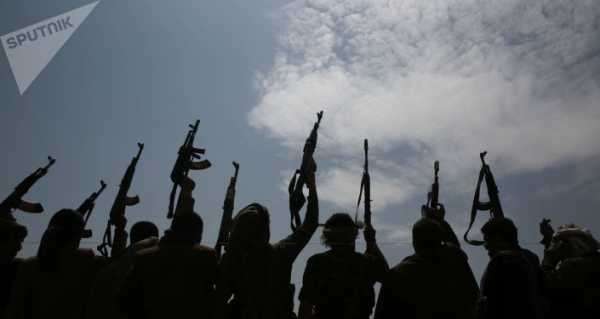
The embattled Middle Eastern state has been engulfed in a civil war since 2014, and there seems to no sign that the situation will turn for the better any time soon.
Yemen can hardly be described as a state, Zvi Bar’el, a Middle Eastern affairs analyst for Haaretz newspaper, suggested.
Despite its official borders being internationally recognised, and “a president, a prime minister, an army, a parliament” being detected, albeit “from a distance”, in terms of crucial infrastructure, the country seems “to consist of spare parts” that do not form a full-fledged state, the author went on.
He described the dire conditions the population has found itself in, as the country is entering the seventh year of its civil war:
Secessions of political forces from the government (of the Southern Transitional Council, for instance, three years ago), let alone the central authorities’ fighting with the Houthis for leverage, are understood to have severely shaken the state’s governance, even the weak state it has lately been lingering in:
“The council’s leader, Major General Aidarus al-Zoubaidi, and his forces took over the city of Aden and a few southern districts, which al-Zubaidi declared an autonomous region under his rule in April”, explains the analyst. He sees it as a development that was threatening the government and military structure set up by Saudi Arabia, which now leads an anti-Houthi coalition, and the UAE as part of their war against the Houthi rebels and their wish to rein in Iran’s influence.
US President Trump has since instructed Saudi Arabia to start negotiations with the Houthis in a bid to reach a cease fire. So, the sides went ahead and signed in November 2019 the Riyadh Agreement, whereby the militants were to withdraw from the territories they had occupied and return to their previous positions.
The agreement also stipulated that the council and the Yemeni authorities would set up a parity government with 24 ministers. However, a year of talks, or rather political bickering, bore no fruit, the analyst suggested.
In a recent development, last Friday, President Abdrabbuh Mansur Hadi announced the establishment of a unity government led by Moein Abdel Malek. The ministers of defence, economy, as well as foreign and interior affairs are said to all be from Hadi’s orbit.
The new government was instantly hailed, although it remains unclear whether and for how long it will last, for while the militants have been forced to retreat, they are still clashing with Muslim Brotherhood loyalists, whose Reform Party is a partner to the government coalition, Bar’el noted, suggesting the praise could be premature.
The war can only come to an end by mobilising the international community to work out a plan for this purpose, but so far a helping hand has only been extended with regard to humanitarian aid, while many other issues remain unresolved, the analyst lamented.
Sourse: sputniknews.com






